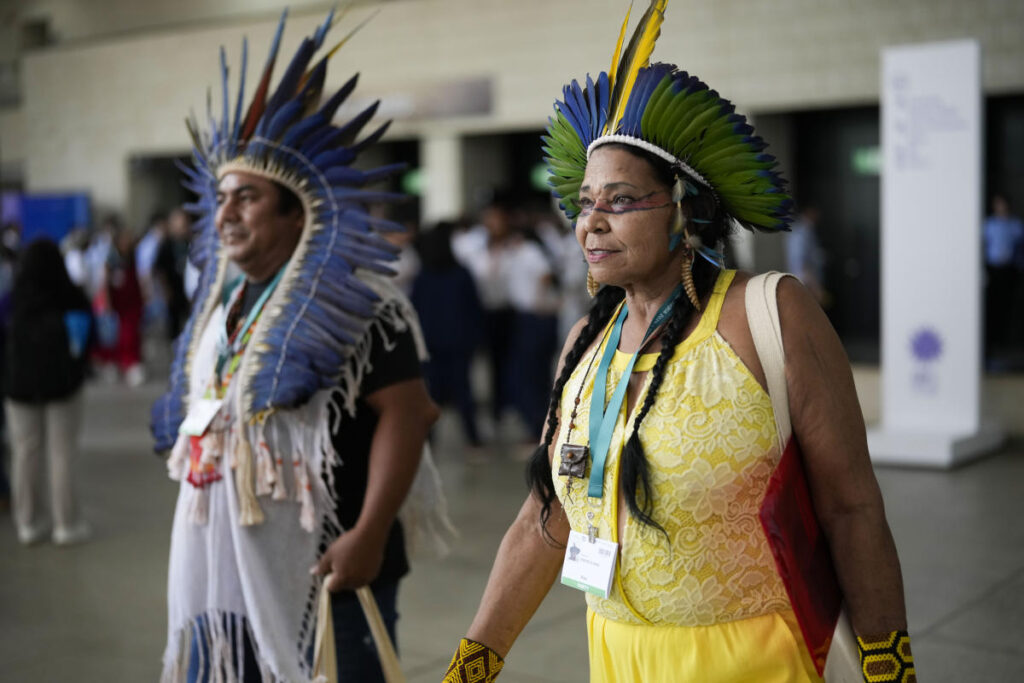Delegates at the United Nations conference on biodiversity in Cali, Colombia, reached a groundbreaking agreement late on Friday to establish a new subsidiary body that will integrate Indigenous peoples into future discussions and decisions pertaining to nature conservation. This summit, COP16, follows the landmark 2022 accord in Montreal, which outlines 23 vital measures aimed at preserving the planet’s biodiversity, including a plan to protect 30% of Earth’s surface and 30% of degraded ecosystems by the year 2030. One notable measure adopted was the acknowledgment of the significant role of people of African descent in nature conservation, marking a step forward in recognizing the contributions of diverse communities to environmental protection.
Throughout the final week of negotiations at COP16, delegates faced challenges in reaching consensus on several key issues. However, after extensive discussions that extended into Friday evening, delegates were able to unite around a comprehensive agreement. The decision to include Indigenous and local communities sparked emotional reactions among global Indigenous delegations, with expressions of joy and tears reflecting the historical significance of the outcome. This decision not only recognizes Indigenous traditional knowledge but also aims to enhance biodiversity management at both global and national levels. Sushil Raj, Executive Director of the Rights and Communities Global Program at the Wildlife Conservation Society, emphasized that this decision empowers inclusive dialogue and decision-making frameworks involving all stakeholders, adhering to international human rights standards.
The newly formed body will operate with two co-chairs: one selected from the UN regional group and the other nominated by Indigenous representatives. The mandate specifies that at least one co-chair will come from a developing nation, with considerations for gender balance also being a priority. The inclusion of Indigenous voices and traditional knowledge in these discussions represents a significant milestone in addressing a longstanding inequity within the Convention on Biological Diversity (CBD), as noted by Colombia’s environment minister, Susana Muhamad. This historic debt, she asserted, had been acknowledged and addressed through the recent agreement.
Additionally, COP16 adopted measures aimed at safeguarding human health from the growing challenges posed by biodiversity loss. Environmental advocates have warned that the degradation of ecosystems and loss of biodiversity critically jeopardize both human and animal health. In this context, recognizing the interconnectedness of species and ecosystems is vital for creating a framework that supports not only ecological integrity but also public health initiatives. The health of ecosystems directly impacts the well-being of communities, and integrating this understanding into conservation strategies is crucial for sustainable development.
Despite the progress made during the two-week COP16 summit, the financial commitments pledged by participating countries fell significantly short of what is required to effectively combat the ongoing global biodiversity crisis. The amount pledged totaled approximately $400 million, a stark contrast to previous agreements where wealthy nations committed to raising $20 billion in annual funding for conservation projects in developing countries by 2025, with a goal to increase this to $30 billion annually by 2030. This shortfall raises concerns about the ability to meet the ambitious targets set forth in both the Montreal agreement and the recent measures adopted in Cali.
According to the World Wildlife Fund and the Zoological Society of London, global wildlife populations have dropped by an average of 73% over the past half-century, illustrating the urgency of effective biodiversity conservation efforts. The decisions made at COP16 hold significant potential for advancing the inclusion of vulnerable communities in environmental governance while highlighting the pressing need for increased financial resources to support conservation initiatives. The collaboration among diverse stakeholders, particularly Indigenous and local communities, will be paramount in addressing the multifaceted challenges of biodiversity loss and ensuring healthier ecosystems for future generations.

